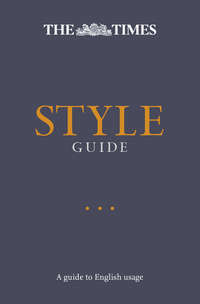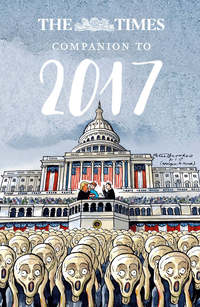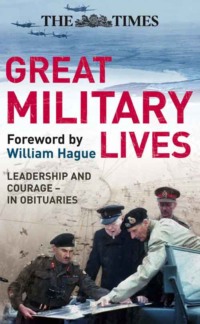The Times Style Guide: A guide to English usage

Полная версия
The Times Style Guide: A guide to English usage
Жанр: учебная и научная литературадетская прозазарубежная образовательная литературадетская познавательная и развивающая литературазнания и навыки
Язык: Английский
Год издания: 2018
Добавлена:
Настройки чтения
Размер шрифта
Высота строк
Поля
Конец ознакомительного фрагмента
Купить и скачать всю книгу




